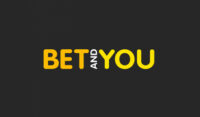The rise of online gambling in South Africa has been a big topic over the past couple of years. As the industry grows, the question of the legal framework has become crucial. Is online gambling legal in South Africa? This article delves into the current legal status of online gambling in South Africa and future changes that may impact the industry. It covers the licensing process, taxes, and a comparison between sports betting and online casinos in the country.
Is Online Gambling Legal in South Africa?
The legal framework of online gambling in South Africa is clear about online casinos and sports betting. Section 2 of the National Gambling Act prohibits South Africans from participating in or offering interactive real-money games. However, the National Gambling Amendment Act of 2008 was drafted to clarify the legal status of online gambling in South Africa.
Currently, online gambling South Africa legal sites are regulated by the National Gambling Board of South Africa (NGB) at the state level. There are also provincial regulators like the Western Cape Gambling and Racing Board, the Gauteng Gambling Board, and the KwaZulu-Natal Gaming and Betting Board. They regulate all forms of gambling, including betting shops, casino facilities, and gaming machines.
While the laws prohibit online casino games, South Africans can play at offshore gambling sites. The operators offer regulated online slots, poker, and bingo games. However, players must be cautious as the casinos are not regulated by the South African authorities. They are also regulated by international authorities like Curacao and the UK Gambling Commission.
Besides casino games, South Africans can legally participate in sports betting. The country has over 50 sports betting sites offering popular sports like football, basketball, Rugby, and horse racing. Additionally, many bookmakers in South Africa offer Daily Fantasy Sports, where players create virtual teams and compete with each other for cash prizes.
Online Gambling Licensing in South Africa
The South African online gambling market is regulated by the National Gambling Board (NGB) and the nine provincial boards. Investors willing to acquire a license must navigate the regulatory bodies, adhere to the strict rules, and show a commitment to upholding responsible gambling.
The regulatory bodies must conduct a thorough background check, including technical inspection, before issuing a license. They also evaluate the operator’s financial stability and compliance with the law.
All online gambling operators applying for a license must invest in the country to be approved. An online sports betting license costs €500, and all stakes are subject to a 16% levy. The law requires local companies to invest €300,000 and €500,000 for foreign operators. Licensed operators must comply with strict regulations about responsible gambling, including minimum age and self-assessment.
Operators must also comply with ongoing audits to ensure they continue to offer safe games and services. Note that the process of getting a license in South Africa can range from a couple of months to over a year. The various licenses are for casinos, sports betting, bingo, gaming machines, and interactive games. The license cost, documents, and approval time vary depending on the type of license.
Online Gambling Tax in South Africa
South Africa is among the biggest economies in Africa, having recorded an outstanding revenue of US$828.50 million in 2024. The establishment of the National Gambling Board has contributed significantly to the growth of revenue income.
Online betting taxes in South Africa are under the Value Added Tax Act, which has a 15% VAT across all transactions. Additionally, gamblers are subject to other taxes, like the National Gambling Act, which imposes a 6% tax on gross gambling revenue.
Unlike many African countries, South Africa taxes professional and successful gamblers, not casual ones. The law requires professional gamblers to report and file taxes on all gambling profits.
Additionally, people working in the gambling industry must pay taxes as they are considered the proceeds of betting or gambling. However, players who record losses are exempt from paying taxes.
Sports Betting vs. Online Casinos
Sports betting and online casino gaming are the significant forms of gambling in South Africa. However, these gambling options have differences as we have highlighted below:
Online sports betting is legal under the National Gambling Board (NGB), allowing South Africans to enjoy safe and regulated services. However, despite the Remote Gambling Bill of 2014, online casinos have yet to be regulated.
South Africans have access to numerous sports betting options, with Rugby and cricket being the most popular sports. Bookmakers also offer football, horse racing, basketball, and tennis. Conversely, online casinos offer popular gaming options, from online slots to poker, blackjack, and roulette.
Another notable difference is that sports betting sites in South Africa are licensed by the National Gambling Act, while offshore online casino operators are regulated by international authorities. All sports betting profits in South Africa are subject to a 15% tax and other taxes, like the 6% tax on gross gambling revenue. However, online casino players enjoy tax-free profits as they are not regulated by the local authorities.
Lastly, successful and professional sports bettors in South Africa must pay all the necessary taxes while casual gamblers are not taxed. This applies to both sports betting and online casino gaming. The similarity between online betting and casino gaming is that online betting involves real money. They also require some skills and strategies to optimize winnings.
How to Play Safe in RSA
There are many factors to consider if you want to enjoy safe and secure gambling in South Africa. Here are vital factors to consider to play safe in RSA:
Choose Licensed Operators: One safety measure is that all operators must be licensed and regulated by the National Gambling Board (NGB). This helps ensure that all operators offer standardized services in a safe environment.
Responsible Gambling Policies: The National Responsible Gambling Programme (NRGP) provides professional counselling to all self-excluded customers. The public health programme runs various initiatives to help create awareness of gambling addiction and problems. Make sure the operator provides responsible gambling measures, like self-exclusion.
Security Measures: Playing at a safe and secure site guarantees fair play and fast payouts. The best online gambling South Africa legal sites use advanced security technology, like SSL. This will protect funds and sensitive information from unauthorized people.
Pay Attention to Community Support: Take advantage of the community’s insights to learn about new gambling trends in South Africa. Join online forums, social media platforms, and legit review sites that provide helpful information about gambling in South Africa.






